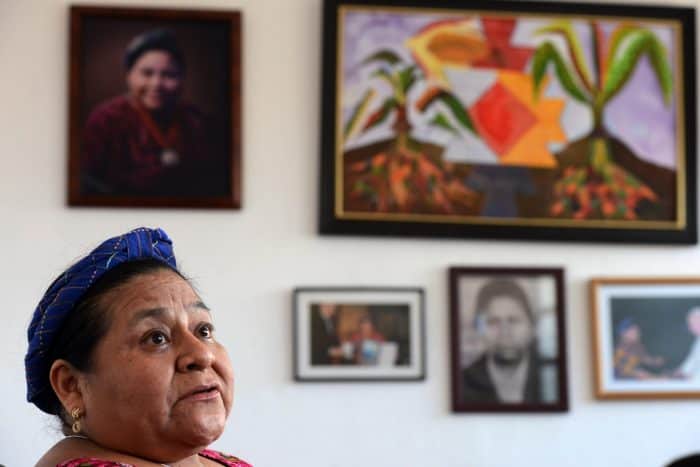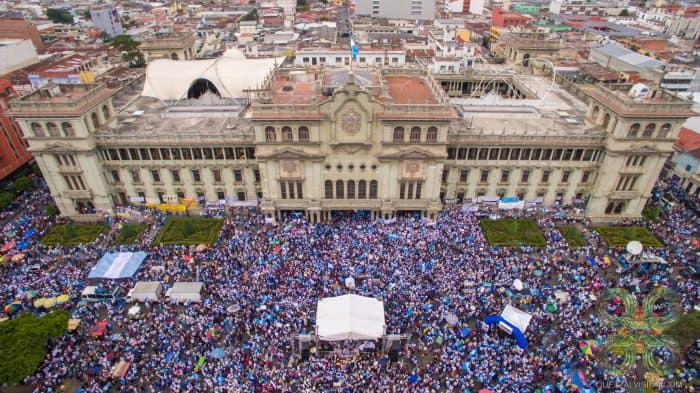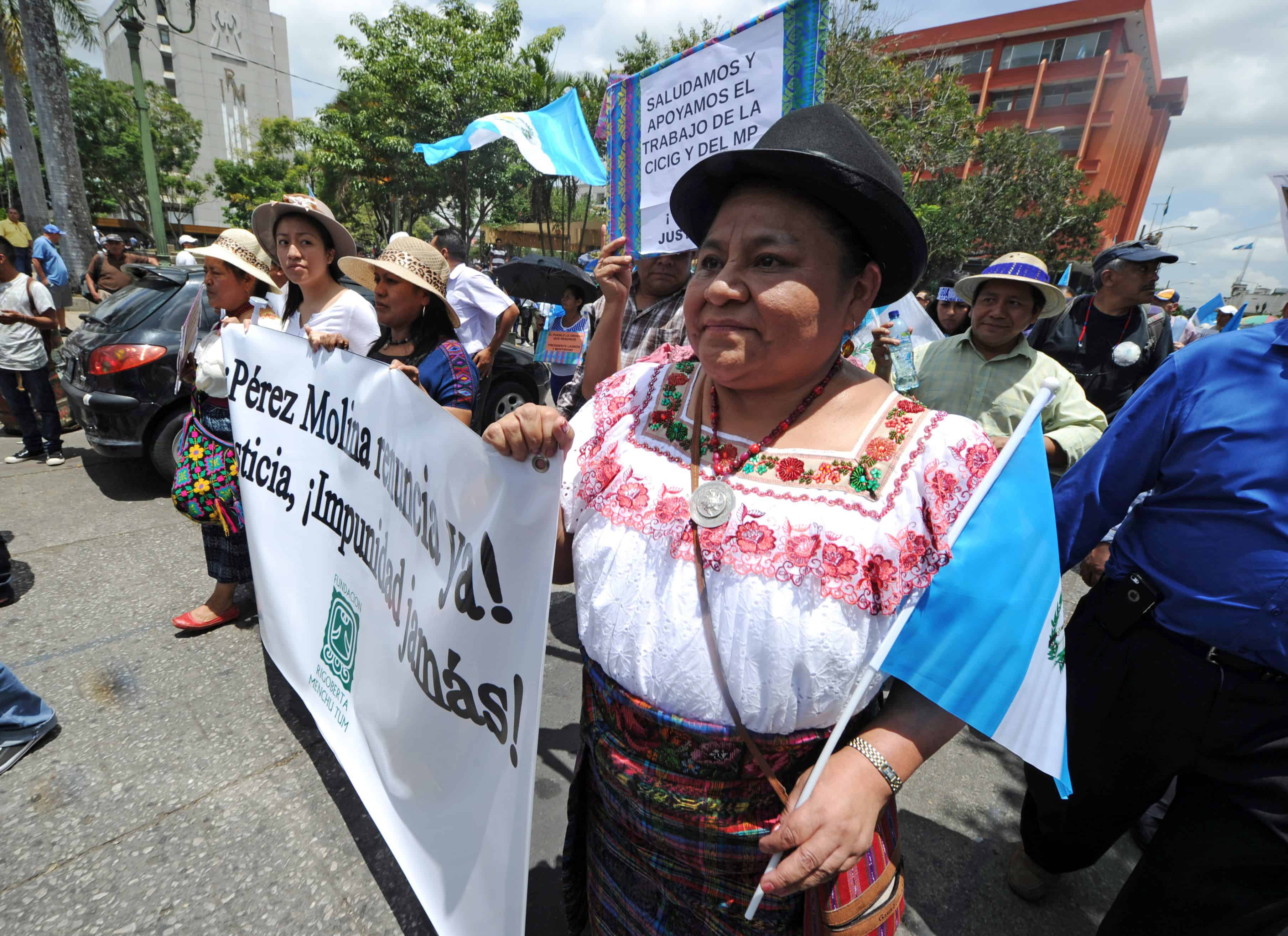GUATEMALA CITY – Guatemalan Nobel laureate Rigoberta Menchú sees the unprecedented protests calling for the ouster of President Otto Pérez Molina as a historic moment for a country long torn by violence, poverty and inequality. Speaking just before Guatemala’s Congress voted Tuesday to strip Pérez Molina of his immunity over allegations of massive corruption — the first such decision in the Central American country’s history — Menchú said the protests represent “a great awakening of the people.”
Menchú, an indigenous activist persecuted by the regime during Guatemala’s long civil war, which lasted from 1960-1996, won the Nobel Peace Prize in 1992 for her fight for social justice and reconciliation between the country’s ethnic and cultural groups. The 56-year-old Quiché Mayan leader is a long-time critic of Pérez Molina, a conservative ex-general who has refused to stand down before his term ends on Jan. 14. We sat down with Menchú on Tuesday to discuss Guatemala’s recent events. Excerpts follow:
What do you make of the protests sweeping the country since April?
It’s a great awakening of the people, but also an example of good citizenship. I have been impressed by the diversity and peacefulness of the marches. It has set an example that should be followed all the time in Guatemala, a racist country, a classist country divided between the rich and the poor. This is a country that has been split by violence, tragedy and deceit.
Since the social movement began, it was clear it had only one objective: a resounding “No” to corruption. It was a “No” to the looting of the country and the state’s coffers, something that has been going on for many years. This was nothing new, but what we didn’t expect was this civic example of protest by Guatemalans: Their indignation never turned violent.
What happened is that the cover of impunity — this cover that was embedded in all our institutions and was impossible to touch — was removed.

Why do you think the president has rejected the calls for him to resign?
He trained with the Kaibil [the Guatemalan Army’s elite force], and the Kaibil never surrender. He’s a man of war, a man of the intelligence services, a dangerous man.
I think he’s not just holing up in the presidential palace, he could also be preparing a shock strategy — using racism, provoking conflict between rural and urban Guatemalans [to undermine the protests].
If he goes to jail, he’s afraid they’ll not only try him for corruption, but also … for the massacres [of indigenous Guatemalans during the war]. But he doesn’t have a choice. Guatemalans are all saying we don’t have a president anymore.

The country is due to hold elections Sunday. Can they go ahead in the current climate?
The elections have been discredited, they have no legitimacy. [But] we have had to unite around the call to vote. I call on Guatemalans to vote, … because there’s no alternative.
The elections have put us in a straitjacket: Either we sit them out, and the people who have always lost will lose again, or we play the same game, with the same risks and the same straitjacket.
My greatest hope is that there will be no violence on Sunday, that we will turn out without fear and vote on Sept. 6 with no bloodshed.






